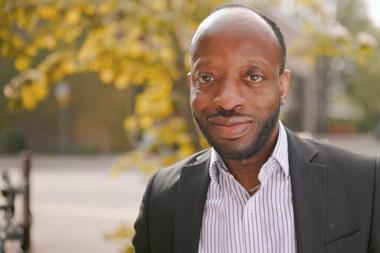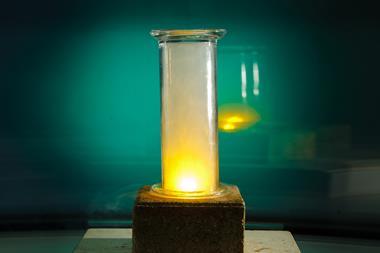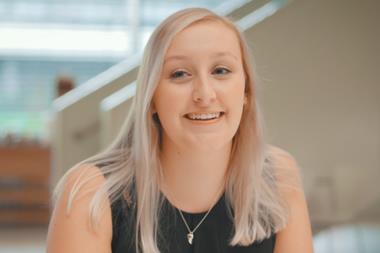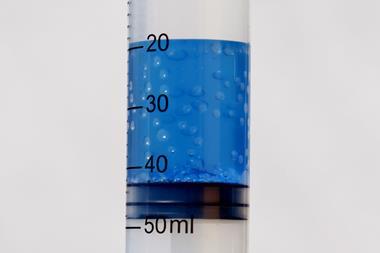Everything you need to know
-
- Salary range: £25–40k Salaries are competitive and depend on location/experience. The average, annual salary for a computational chemist in the UK is £37k (Glassdoor).
- Minimum qualifications: PhD in related discipline usually required
Studied at: University of Oxford - Skills required: Modelling, simulation, teamworking, communication, data-analysis
- Training required: No specific additional training required
- Work–life balance: Fair
- Career progression: Professional registration available, as well as opportunities to apply for more senior positions/responsibility
- Locations: Find related work experience positions using our map of employers. Find out about work experience and internship opportunities at GSK on their website
More profiles like Richard's
What do you do?
I’m a scientific leader within the Molecular Design Group at GSK, Stevenage. GSK is a global pharmaceutical company, researching and producing innovative, high-quality medicines. I support drug discovery projects using different computational chemistry methods.
My day normally consists of a combination of modelling and meetings. The modelling can be a variety of things depending on the requirements of the project and can include designing and filtering compounds, running simulations or performing large-scale virtual screens. I have regular meetings with the chemists, biologists and the other colleagues I am working with on the early stage drug discovery projects.
My role also involves discussing technology developments with other computational chemistry and advising each other on how to best support our projects.
How did you find your job?
I knew that I wanted a career that involved chemistry but I was a bit of a disaster in the lab and realised early on that I was never going to be a lab-based chemist. For my fourth-year research project, I decided to give computational chemistry a try, as this allowed me to still perform chemistry experiments but on a computer instead of in a lab. My research project sparked something inside me – I realised that I wanted to be a computational chemist.
A PhD in computational chemistry was the next logical step, and it was then that I became interested in modelling proteins as well as small molecules. After spending a few years working in academic research groups in the UK and Germany, I wanted to try working in the pharmaceutical industry. My transition to industry started with a postdoctoral opportunity at a large pharmaceutical company, where I got valuable experience of applying computational chemistry methods in a drug discovery setting. I then went on to get a role at GSK in 2018 where I now support drug discovery projects.
How did your qualification help you to get your job?
My PhD in computational chemistry was a key requirement for my current job. During my PhD, I gained fundamental experience of conducting novel research as well as practical knowledge of modelling proteins. My PhD work provided the knowledge and experience that I needed to get my postdoctoral position in industry.
How does your work affect the world around us?
Computational chemistry helps to accelerate the medicine discovery process, bringing much needed medicines to patients, quicker. We play an important role in the design of new compounds and use state-of-the-art prediction technologies to select the most promising compounds to make, working alongside medicinal chemists. By doing this, we can reduce the number of compounds that are made and the number of design cycles that are needed.
What do you love about your job?
The thing that I love most about my job is that I am always learning new things. New technologies are continually emerging and it is part of my job to closely follow these and incorporate them into our work when they are appropriate. The drug discovery process involves many different aspects and I enjoy learning more about these as my projects reach their different stages.
What inspired you to work in chemical science?
My motivation derives from the fact that I am doing cutting-edge research that can also improve the lives of patients.
I was interested in science from a young age. At secondary school, my favourite subject was chemistry and selecting A-levels in chemistry, maths and physics was the natural choice for me before doing a degree in chemistry at university. I chose chemistry because I liked the logic and patterns behind it. I think part of this is because of the way that it was taught to me at school. We were encouraged to explain things based on the knowledge that we already had, rather than memorising facts.
What advice would you give to a young person considering a career in your field?
If you are considering a career in industry, I would recommend reaching out to people in the sector and finding out about work experience opportunities. For those already studying chemistry, an internship or PhD that involves spending some time at a company can provide valuable experience.
Want to know more?
- Explore the protein data bank where the protein complex shown in the film is listed (entry 6ZB0).
- Read about the compound shown in the film (compound 20).
Richard Lonsdale MRSC, scientific leader within the Molecular Design Group at GSK.
Published December 2022
























